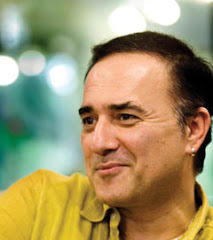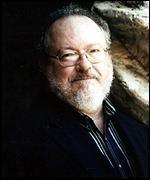Thomas Browne Quotes - Page 4

Sir Thomas Browne (1658). “Pseudodoxia Epidemica, Or, Enquiries Into Very Many Received Tenents, and Commonly Presumed Truths”
S. Wilkin (ed.) 'Sir Thomas Browne's Works' (1835) vol. 4, p. 355 'On Dreams'
Hydriotaphia ch. 5 (1658)
'Religio Medici' (1643) pt. 2, sect. 11
For my part, I have ever believed, and do now know, that there are witches.
Sir Thomas Browne (1835). “Sir Thomas Browne's Works: Religio medici. Pseudoxia epidemica, books 1-3”, p.43
Sir Thomas Browne, James Thomas Fields (1862). “Religio Medici: A Letter to a Friend, Christian Morals, Urn-burial, and Other Papers”, p.205
Sir Thomas Browne (1736). “Sir Thomas Browne's Religio Medici: Or, the Christian Religion, as Professed by a Physician; Freed from Priest-craft and the Jargon of Schools”, p.17
'Religio Medici' (1643) pt. 2, sect. 9
The world, which took six days to make, is likely to take us six thousand years to make out.
Sir Thomas Browne, Leonard Cyril Martin (1964). “Religio medici, and other works”
Sir Thomas Browne, James Thomas Fields (1862). “Religio Medici: A Letter to a Friend, Christian Morals, Urn-burial, and Other Papers”, p.421
Sir Thomas Browne (1852). “The Works of Sir Thomas Browne: Hydriotaphia. Brampton urns. A letter to a friend, upon occasion of the death of his intimate friend. Christian morals, &c. Miscellany tracts. Repertorium. Miscellanies. Domestic correspondence, journals, &c. Miscellaneous correspondence”, p.44
Sir Thomas Browne (1845). “Religio Medici: Together with a Letter to a Friend on the Death of His Intimate Friend and Christian Morals”, p.112
He who discommendeth others obliquely commendeth himself (Christian morals).
'Christian Morals' (1716) pt. 1, sect. 34
Sir Thomas Browne (1844). “Religio Medici [and] Its Sequel Christian Morals”, p.158
Thomas Browne (1682). “Religio Medici”, p.100
'Religio Medici' (1643) pt. 1, sect. 9
Be Charitable before wealth make thee covetous, and loose not the glory of the Mite.
"Christian Morals".
Sir Thomas Browne, Claire Preston (1995). “Selected Writings”, p.155, Psychology Press
Sir Thomas Browne (1872). “Religio Medici: A Letter to a Friend, Christian Morals, Urn-burial, and Other Papers”, p.251
Grave-stones tell truth scarce forty years. Generations pass while families last not three oaks.
Sir Thomas Browne (1852). “The Works of Sir Thomas Browne: Hydriotaphia. Brampton urns. A letter to a friend, upon occasion of the death of his intimate friend. Christian morals, &c. Miscellany tracts. Repertorium. Miscellanies. Domestic correspondence, journals, &c. Miscellaneous correspondence”, p.43
Sir Thomas Browne (1844). “Religio Medici [and] Its Sequel Christian Morals”, p.102
1634-5 Religio Medici (published 1643), pt.2, section 9.
Sir Thomas Browne, Sir Kenelm Digby, Thomas CHAPMAN (of Exeter College, Oxford.) (1831). “Religio Medici”, p.118






